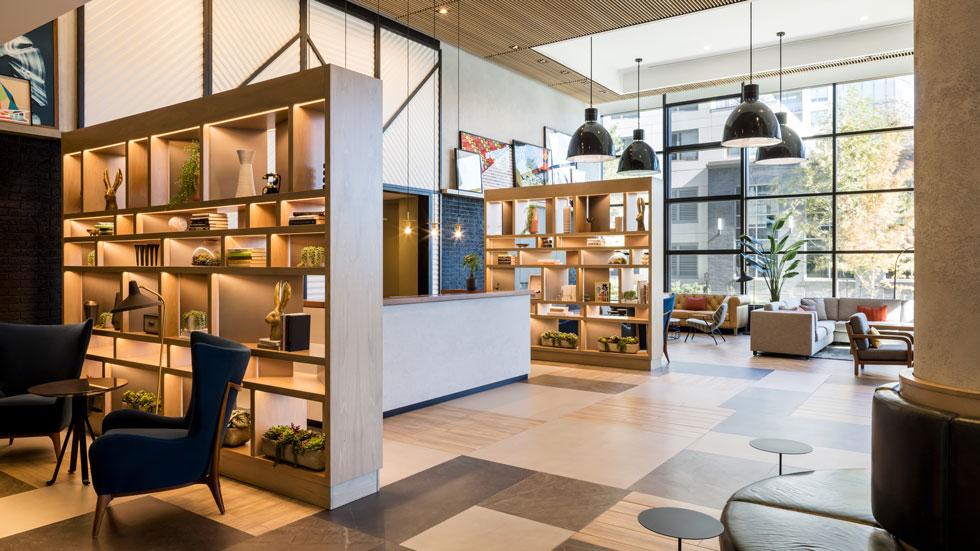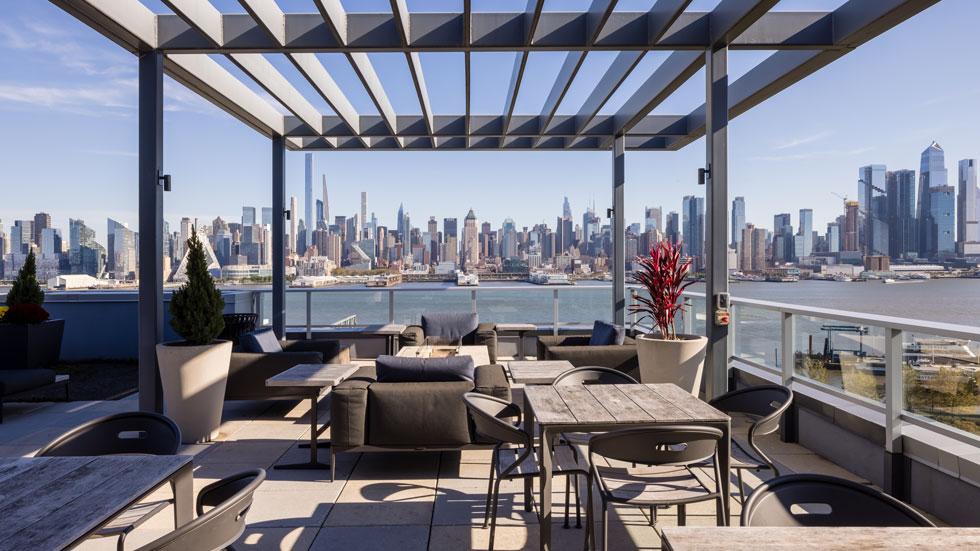
Mahbod Nia has had a busy three years as CEO at Veris Residential, Inc. (NYSE: VRE). On his first day on the job back in March 2021, he announced that the company would be making a strategic shift to a pure-play multifamily REIT. What followed was a rapid transformation of the former Mack Cali Realty Corp. from a portfolio heavily concentrated in office to what is now a 100% multifamily REIT.
Despite challenges within the transaction market that included COVID-19 shutdowns, uncertainty around the future of office, and rapidly rising interest rates, Veris has successfully sold $2.5 billion of its non-strategic assets, primarily office, as well as three hotels and 14 land parcels, encompassing more than 50 total sales since the first quarter of 2021.
At the same time, the REIT grew its multifamily portfolio by nearly 2,000 units through the development and stabilization of four new properties and one acquisition. The Veris portfolio now consists of 22 Class A communities located in the northeast that total more than 7,622 units.
In addition to transforming its portfolio, Veris has been busy rebranding the company and rebuilding its operating platform, which involved putting new people, processes, and technology in place. “That has allowed us to really extract extremely high performance from our assets,” Nia says. Based on year-end 2023 financials, the firm achieved 2023 NOI growth of 17.6%, with annual rent growth of 11.0% and occupancies at 94.4% as of the fourth quarter.
Veris marked a milestone in exiting its office assets in January with the announcement that its last office asset, the 34-story Harborside 5 in Jersey City, was under binding contract to sell for $85 million. “It was not an easy process because of the nature of what unfolded in the office market. But they've now completed it, and what they have is a high-quality apartment portfolio at this point that's performing quite well,” says Anthony Paolone, co-head of U.S. real estate stock research at J.P. Morgan.
The key question now is where does the firm go from here? “We think there's more to do,” Nia says. “I wouldn't say we are in a mature, optimized state at this point. A company that's just completed a transformation like ours still has potential for continued outperformance through operational enhancements, balance sheet optimization and capital allocation.”
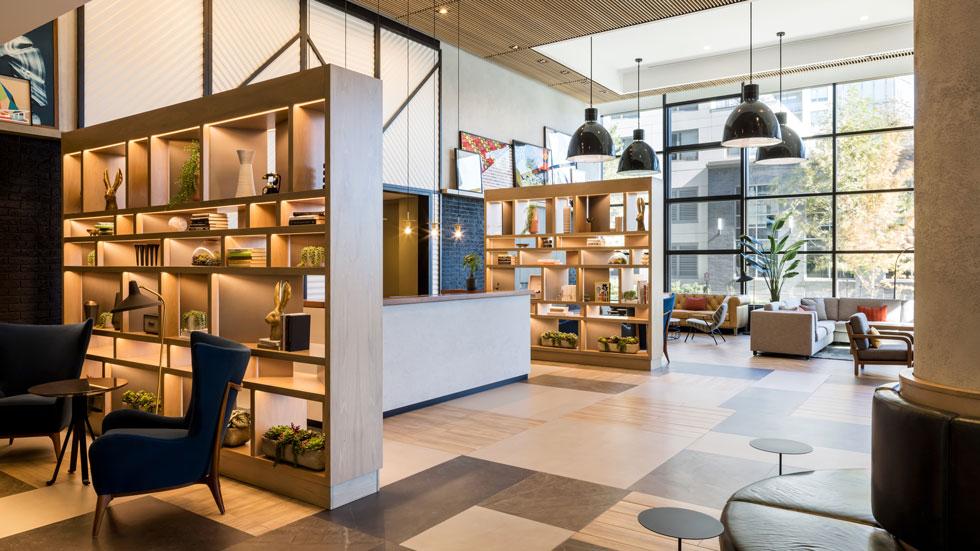
Phase Two: Optimization
With the transformation to a pure-play multifamily REIT now fully executed, Veris is turning its attention to optimization with three significant areas available for continued value creation: operational efficiencies, capital allocation initiatives that drive accretive value, and further strengthening of its balance sheet.
Nia sees more opportunities ahead in all three areas in the near term. “With capital allocation, we are really looking at every dollar of equity that sits within the business, and asking the question, ‘what does that generate for us both in terms of current return and total return potential, and is there a higher and better use for that equity?’” he says.
With capital allocation, we are really looking at every dollar of equity that sits within the business, and asking the question, ‘what does that generate for us both in terms of current return and total return potential, and is there a higher and better use for that equity?’
Net proceeds from the sale of assets under contract, including Harborside 5, are expected to net roughly $130-plus million in cash. In addition, the REIT owns $215 million in land that is sitting idle. Combined, that amounts to roughly $350 million of equity that isn’t generating any earnings or return. “In theory, if I were to monetize all of that and put it to use, whether it's to pay down debt or to acquire assets, I would end up generating returns,” Nia says.
For example, 5% or 6% on $350 million would generate around 20 cents of annual earnings accretion from just that capital reallocation. Twenty cents is about 30+% of the company’s full-year 2023 earnings. “There are very few companies that can say what we can: through internal capital reallocation and optimization of that capital, we can enhance the baseline performance from the portfolio, which is already positive and expected to be positive next year and grow earnings by potentially 30%,” Nia says. In addition, there is the opportunity to unlock additional equity in the future from joint ventures.
Veris plans to continue to drive value through its operations, both in increasing revenues and reducing expenses. The company is continuing to leverage the guided AI-based revenue optimization that it adopted a couple of years ago, which was a significant improvement over the manual rent-setting method the company used in the past. The company is exploring other opportunities to optimize revenue, such as focusing on customer experience to continue to increase its customer retention rate, which has already improved from the mid-40% to high 50% range.
The company is also looking to better control expenses through technology, such as maintenance software, as well as continuing to leverage its virtual leasing assistant to generate greater efficiency. Virtual assistant “Quinn” is saving the company about 1,200 hours a month of human capital time. “Quinn allows us to free up the time of our leasing agents so that they may focus on better handling the human-oriented elements of their job while leaving the more process-oriented elements associated with early-stage prospects in the hands of the virtual assistant,” Nia says.

Balance Sheet Improvements
Veris has made big strides in strengthening its balance sheet over the last three years. The company has reduced the amount of net debt by more than $1 billion and lowered net debt to EBITDA from 18.8x to just below 12x. “It’s not just that we’ve reduced the indebtedness, it's also the type of debt that we have outstanding,” Nia says. “We have not only de-levered, but I like to say, we've also de-risked the balance sheet.”
Roughly $600 million of the debt that the company had outstanding three years ago was senior secured recourse corporate bonds with a 4% coupon that matured over the course of 2023 and 2024. That debt was largely funding the office portfolio. Veris has since used the sale proceeds to repay those bonds. Today, the REIT only has senior secured mortgage debt at a fairly low basis of about 4.5% with healthy debt service coverage ratios.
Nia sees a path to further reduce leverage if the management team and the board feels that paying down its debt is the best use of its capital. The REIT has about $308 million in maturities this year, and the company may choose to refinance another loan that, while not maturing, does face a rate reset. That additional loan would bring the total refinancing amount in 2024 to $467 million. “We anticipate being able to refinance those comfortably given the options that appear to be open to us,” says Nia. Beyond that, the REIT doesn’t have any other near-term maturities until 2026.
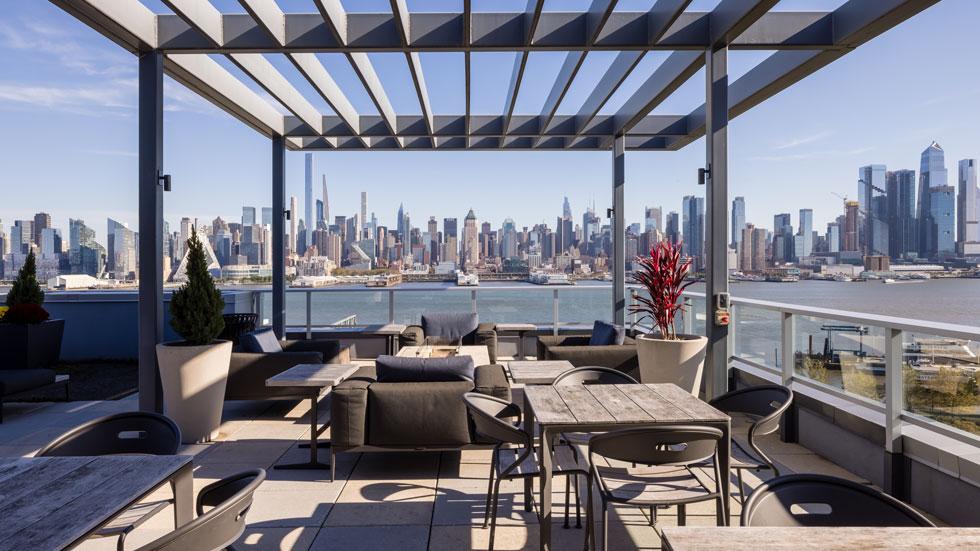
Positioning for Long-Term Value Creation
On the positive side, Veris has a portfolio of high-quality assets in markets that have performed quite well, notes Paolone. “They’ve also focused on operations, and you've seen that come through in the performance of the cash flows at the asset level,” he says. Analysts such as Paolone also highlight a couple of challenges ahead for the REIT. One is its relatively small size for a publicly traded company, with a market cap of about $1.35 billion. Two is a balance sheet that remains highly levered relative to its peers. Many of the apartment REITs have debt to EBITDA ratios that are below 5x. “So, the question is whether Veris stays independent, or ultimately rolls into another type of entity or vehicle at some point, whether it is a public transaction or some type of go-private,” Paolone says.
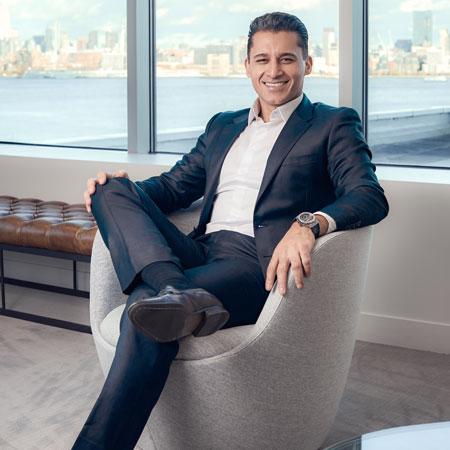
Going forward, Veris remains firmly focused on its optimization strategy and organic growth. The board and management team remain open to all capital allocation alternatives, including debt repayment, acquisition, and development. One key project that was recently announced is a major capital investment in its 648-unit Liberty Towers project in Jersey City. The company will be investing about $30 million over the next three years to modernize the asset, which it anticipates will generate a mid- to high-teens return through rent increases.
As part of its commitment to creating long-term value for shareholders, the firm is taking into consideration its environmental and social obligations. Eighty percent of its apartment properties are green-certified, and the company has introduced solutions such as paperless leasing that help to reduce its carbon footprint, leading to a 54% reduction of Scope 1 & 2 emissions since 2019. Additional initiatives have allowed the company to reduce its energy consumption by 24% and become the first company globally to achieve the International WELL Building Institute’s Equity Rating portfolio wide.
Veris’ commitment to sustainability has been recognized with a collection of industry recognition, including Nareit's Leader in the Light Award for outstanding sustainability efforts in the residential sector. Its commitment to diversity, equity, and inclusion was also acknowledged by Nareit with a bronze recognition in its DEI Recognition Award.
Nia believes that the quality of the company’s assets and the supply and demand dynamics of the markets are two of its key differentiators. He is also proud of the firm’s cohesive, team-oriented culture. “We're fortunate that we've got great properties, but those are brick and mortar, and they don't manage themselves,” he says. “The real value in Veris is in the platform and the employees, the people that come in every day and through that commitment and hard work, allow us to be able to extract the value that we do from those properties.”
